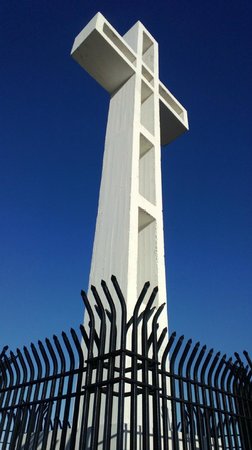When I started this blog a few years back, it pretty much was the recipient of all my theological-faith-writing-chops. Then a couple of years into it and I became an interim pastor at a Church in town, which morphed into a part-time-every-week-teaching pastor thing.
Needless to say, working on a sermon every week has taken over my theological-faith-writing-chops. And for those of you who to whom I have failed to deliver, I apologize. Hence Singing with the King 2.0.
It will be a lot shorter, there will be no fancy artwork or germane music to tie it all together. Sometimes finding the right picture, or the right song. took as much time as the writing. So for the time being, you’re stuck with just my musings, meditations, and meanderings, as we seek to worship the King.
What I write will be what the Lord brought into my path that day. So for this Sunday, it’s Psalm 62:1-2.
For God alone my soul waits in silence; from him comes my salvation.
He only is my rock and my salvation, my fortress; I shall not be greatly shaken.
Have you ever tried to wait in silence for God alone?
Waiting in silence is just one word in the Hebrew and it can mean both silence and rest. Now I gotta admit that waiting in silence does not play to my strengths. I have an over-active imagination, random thoughts just pop into my brain, distractions abound, and many other aspects of my life overwhelm me and keep me from waiting in silence. And focusing ONLY on Him, there’s a whole ‘nother challenge.
But when you look at what David was in the middle of when he wrote this, I am seriously put to shame:
How long will all of you attack a man to batter him, like a leaning wall, a tottering fence?
They only plan to thrust him down from his high position. They take pleasure in falsehood.
They bless with their mouths, but inwardly they curse. (3-4)
Attack, batter, thrust down, speaking lies and cursing. All in a day in the life of a king. So what’s my excuse? Mine’s more drama than trauma.
We learn from David that waiting in silence for God alone has nothing to do with the conflict with his enemies, and everything to do with his commitment to his Lord. His love for God was more important that his personal safety. And we are reminded that the battle belongs to the Lord, as does our salvation.
Father, each me to “Be still and know that you are God.” Amen.


 This verse appears three times, twice in this one and once is Psalm 43. When you read these Psalms together, you realize that this phrase (v. 5, 11, and v. 5 in the second psalm) fills the function of a refrain or chorus. Now the purpose of a chorus (except for those who aren’t very good with lyrics and need to say things over and over) is to repeat lines both thematically and musically to ensure it sticks, and that we don’t miss whatever it is being said (sung). So what precedes this chorus?
This verse appears three times, twice in this one and once is Psalm 43. When you read these Psalms together, you realize that this phrase (v. 5, 11, and v. 5 in the second psalm) fills the function of a refrain or chorus. Now the purpose of a chorus (except for those who aren’t very good with lyrics and need to say things over and over) is to repeat lines both thematically and musically to ensure it sticks, and that we don’t miss whatever it is being said (sung). So what precedes this chorus?